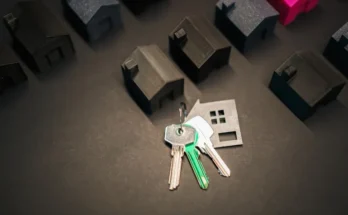When most people hear the term “real estate,” they think of buildings, land, or maybe a sprawling mansion on a hill. But real estate is far more than physical structures—it’s the emotional thread that ties us to dreams of security, prosperity, and legacy. It’s an industry where every square foot tells a story, and every plot of land has untapped potential. Whether you’re a first-time buyer, a seasoned investor, or just someone fascinated by architecture and neighborhoods, real estate is an arena that touches everyone, everywhere.
Understanding the Foundations of Real Estate:
Real estate is divided into several categories: residential, commercial, industrial, and land. Each of these sectors serves a different purpose and carries its own investment strategies, market trends, and opportunities. Residential real estate includes everything from cozy bungalows and city apartments to luxurious penthouses and vacation homes. Commercial real estate is made up of office buildings, retail stores, and entertainment complexes. Industrial real estate, on the other hand, revolves around factories, warehouses, and logistics hubs. And let’s not forget undeveloped land, the blank canvas for all future development.
Real estate plays a vital role in global and local economies. It creates jobs, supports ancillary industries (like construction, home goods, and landscaping), and generates tax revenue. Property values can be indicators of regional economic health, while development projects can breathe new life into communities. When real estate markets thrive, so does the broader economy. Conversely, when the property sector stumbles, its ripple effects are felt far and wide, as seen during the 2008 financial crisis.
Homeownership:
-
More Than Shelter
For many, owning a home is not just about having a roof over one’s head. It represents stability, freedom, and achievement. It’s the place where families are raised, milestones are celebrated, and memories are etched into walls. Despite rising prices and economic uncertainty, the allure of homeownership persists across generations.
Millennials, once labeled the “renter generation,” are increasingly entering the buyer’s market, bringing with them new priorities: energy efficiency, walkable neighborhoods, and smart home features. Meanwhile, Gen Z is already browsing real estate apps and envisioning their future homes, influenced by social media platforms that blend lifestyle and property aesthetics.
-
Challenges in the Path to Ownership
However, the path to homeownership isn’t always paved in gold. Skyrocketing prices, limited inventory, and soaring interest rates can make that dream feel distant. Many prospective buyers now face bidding wars, rigorous loan approvals, and shifting markets. But innovation is helping to bridge these gaps. From shared ownership models to co-living spaces and government incentives for first-time buyers, new solutions are emerging to keep the dream alive.
The Investor’s Playground:
-
A Prime Investment
Ask any seasoned investor, and they’ll tell you—real estate is more than an asset; it’s a vehicle for wealth creation. Unlike stocks and bonds, real estate offers tangible security and the promise of both passive income and long-term appreciation. Rental properties generate steady cash flow, while property values often increase over time, especially in high-demand areas.
Additionally, real estate can serve as a hedge against inflation. As the cost of living rises, so does the value of property and the rent it can command. For this reason, many investors diversify their portfolios by adding commercial buildings, vacation rentals, or REITs (Real Estate Investment Trusts).
-
Risks and Rewards of Property Investment
But real estate investing isn’t without risks. Market downturns, tenant issues, natural disasters, and maintenance costs can turn a golden opportunity into a financial sinkhole. Successful investors do their homework, monitor market trends, and often lean on experienced property managers. Today’s investors also utilize data analytics and AI to make smarter, more informed decisions.
The Digital Transformation of Real Estate:
-
From Paper Contracts to Virtual Tours
The real estate industry, once slow to adapt, has undergone a technological revolution. Gone are the days of thick paper contracts and endless open houses. Now, buyers can tour homes virtually, sign documents electronically, and get pre-approved with a few clicks.
Real estate platforms like Zillow, Redfin, and Realtor.com have become household names, offering transparency and accessibility that was once unimaginable. These platforms use AI to match users with homes they’re most likely to love and provide real-time market data for buyers and sellers alike.
-
Smart Homes and Sustainable Spaces
Tech is also reshaping the homes themselves. Smart homes are no longer a futuristic concept—they’re becoming standard. Homeowners expect integrated security systems, voice-activated controls, and energy-efficient appliances. Sustainability is no longer a luxury but a necessity, with green building practices and eco-conscious developments attracting both consumers and investors.
Real Estate’s Role in Shaping Society:
-
Cultural Shifts
Real estate doesn’t just mirror economic trends—it shapes how we live, connect, and grow. Gentrification, urban sprawl, and affordable housing initiatives all influence the social fabric of our communities. As cities evolve, old factories become chic lofts, and forgotten corners turn into vibrant cultural hubs.
However, this transformation isn’t always welcomed. Displacement, rising rents, and community pushback are very real consequences of rapid development. The future of real estate must balance progress with preservation, profit with people.
-
The Rise of the 15-Minute City
A fascinating trend emerging worldwide is the concept of the “15-minute city.” The idea is simple yet powerful: everything you need—work, schools, shops, parks—should be within a 15-minute walk or bike ride. This model promotes sustainability, community, and a higher quality of life, and urban planners are increasingly using it as a blueprint for future developments.
The Future of Real Estate:
Looking ahead, real estate will continue to evolve—fueled by changing demographics, environmental challenges, and technological advances. Modular construction, blockchain-based property transactions, and AI-powered valuation tools will become the norm. But amid all this innovation, the essence of real estate remains human. It’s about people, places, and the emotions that connect them.
The real estate market of tomorrow must be inclusive. It should provide opportunities for low-income families, first-time buyers, remote workers, and retirees alike. Affordable housing, flexible zoning laws, and community-focused planning will be key to making real estate not just a commodity—but a foundation for societal well-being.
Conclusion:
Real estate is a universe of potential. It’s a dream nurtured by millions, an investment sought by the savvy, and a pillar of every economy. Whether you’re walking through your first home, scouting a new neighborhood, or studying market trends, you’re participating in a story much larger than your own. A story written in blueprints and backyards, in city skylines and country roads. The world of real estate isn’t just changing—it’s evolving. And the next chapter is already being built.




